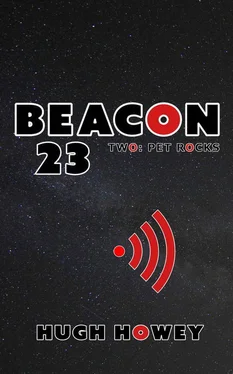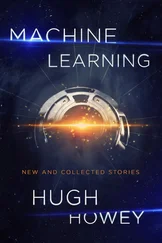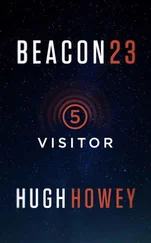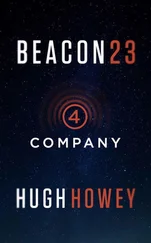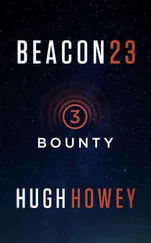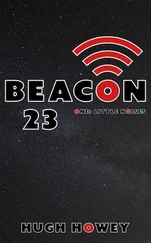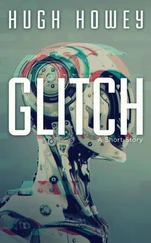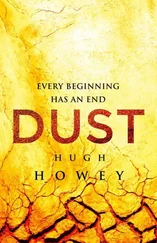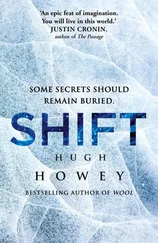Hugh Howey - Pet Rocks
Здесь есть возможность читать онлайн «Hugh Howey - Pet Rocks» весь текст электронной книги совершенно бесплатно (целиком полную версию без сокращений). В некоторых случаях можно слушать аудио, скачать через торрент в формате fb2 и присутствует краткое содержание. Год выпуска: 2015, Издательство: Broad Reach Publishing, Жанр: sf_space_opera, short_story, на английском языке. Описание произведения, (предисловие) а так же отзывы посетителей доступны на портале библиотеки ЛибКат.
- Название:Pet Rocks
- Автор:
- Издательство:Broad Reach Publishing
- Жанр:
- Год:2015
- ISBN:нет данных
- Рейтинг книги:5 / 5. Голосов: 1
-
Избранное:Добавить в избранное
- Отзывы:
-
Ваша оценка:
- 100
- 1
- 2
- 3
- 4
- 5
Pet Rocks: краткое содержание, описание и аннотация
Предлагаем к чтению аннотацию, описание, краткое содержание или предисловие (зависит от того, что написал сам автор книги «Pet Rocks»). Если вы не нашли необходимую информацию о книге — напишите в комментариях, мы постараемся отыскать её.
Pet Rocks — читать онлайн бесплатно полную книгу (весь текст) целиком
Ниже представлен текст книги, разбитый по страницам. Система сохранения места последней прочитанной страницы, позволяет с удобством читать онлайн бесплатно книгу «Pet Rocks», без необходимости каждый раз заново искать на чём Вы остановились. Поставьте закладку, и сможете в любой момент перейти на страницу, на которой закончили чтение.
Интервал:
Закладка:
I should get out more, I realize. The perspective feels good. NASA regs state that we should go for a walk once a week to inspect things, but I’m told no one does that. It’s easier to sit with our heads against the GWB, enjoying the buzz and hoping nothing bad happens to stir us from our miserable comfort.
The multi-display on the dash flickers as I lose uplink with the beacon for a moment. I slap the side of the unit, and the video returns to normal. I’ve got the beacon’s bio scanner repeating to the display so I can track the blip. I keep waiting for it to disappear. I can feel my beacon operator down in Houston tracking all the telemetry and drumming his or her fingers on their desk, wishing I’d hurry up and get them more data. At the neighboring desk, an operator is probably dealing with beacon 512 and a pesky blackwater pump with a mind of its own. Next row down, someone is telling beacon 82 that their traffic lane is being diverted, and a tug will be out next week to relocate them. Suddenly, Houston is nothing more than a customer support call center, tending to the small emergencies across a fleet of expensive metal drums that dot the expanse of the cosmos. Heh. Maybe we’re the taskmasters, not them.
The collision alarm sounds as a large asteroid tumbles and spins my way. It’s a long way off, plenty of time to correct course, but as I do so, I can see why the alarm has given me so much notice: this tin can drives like a unicycle, and the lone wheel is that spinny one on the shopping cart with a mind of its own.
Around the back side of a small moon of a rock, about thirty klicks from the beacon, I get a lock on the bio source. It’s just five hundred meters ahead, and it’s drifting toward the beacon at a decent clip. Like it was coming for me. I reach to zoom the HUD for a visual and find my gloved hand pawing at empty space. There is no HUD. I’m not in my Falcon. Crazy how long little twinges of habit like this can last. I have to make do with leaning forward against my harness to strain with my eyes.
There.
Among the maze and jumble of rocks, an object with neat manmade lines and corners. Looks like a standard cargo container, the kind that gets loaded into the belly of short-hop atmo ships in those busy cargo spaceports above settled planets. She’s painted bright green and has marks of impact across her side, along with writing in a few different languages.
I slow the lifeboat—little crystals forming from the forward jets of air—and unfold the articulating arm that tucks in under her nose. As I get closer, I see a constellation of objects drifting alongside the container—its contents, no doubt spilled after a collision with one of the many tumbling rocks. A toilet seat spins past. Dozens of them. Splinters of wooden crates. Gossamer moths of ladies’ dresses, many still on hangers, oddly keeping their wrinkled shapes as they drift past.
I enter an asteroid field within an asteroid field. If the larger assemblage of rocks represents some proto-planet that never quite formed, then this is like a department store that never achieved critical mass.
Turning the lifeboat toward the container, I flip on the forward spotlights, which barely pierce the dark interior of the metal box. I wonder, briefly, if I’m going to have to go in there. And it occurs to me that until someone licks AI, this is why NASA needs monkeys in space. To make stupid monkey decisions like these.
I check the multi-display again to see what the bio scanner is telling me. The signature looks different. More faint. I slap the screen and the entire image wavers, but the little red blip in the center remains a shadow of its former self. Whatever was alive out there won’t be for much longer. And now that I’m here, so close to whatever it is, I feel the need to rescue it. I just wanted it to go away before. Now I want it to hold out a little bit longer.
I turn the ship from side to side and watch the blip. That helps to triangulate it, to make sure the source is coming from inside the container. A large plastic postal service bin tumbles past, spilling envelopes and small packages. There are more of the damn toilet seats. They clunk off the hull, but pose no threat. And the red blip slips to the side of the screen. Somehow, it has moved past me.
Turning the ship, I watch the screen until the blip is centered again. I peer at the spot and see only the small cluster of packages and mail items. So I won’t be rescuing anyone. It was a silly fantasy anyway. What I’m probably tracking down is a batch of cookies from someone’s grandmother, cookies that have now grown hairy with space-resistant mold. A letdown for me, though NASA goes bonkers for mold, so my operator will be thrilled.
A dozen meters from the assemblage, I unfold the articulating arm. I open my visor to see better and release my harness so I can lean forward and peer through the windshield. Using the arm, I gently wave back and forth through the trail of packages, knocking them on new trajectories. I keep glancing down at the screen to see when the blip moves. But when I see the object with my own eyes, I know. Somehow, I know. Through a torn cardboard package, I see a wooden box, bigger than a toaster, rich red like cherry, and gleaming with varnish.
It’s not just the vivid beauty of the object, caught in the lifeboat’s spotlights, nor the grain of wood—a sight for sore eyes. It’s the way the box has broken open that makes me think the sign of life picked up by the sensors might be leaking from the ruptured package.
I pass through a haze of envelopes and bound packages. Reaching with the arm, I seize the box, and then I turn the lifeboat ninety degrees; the blip stays perfectly centered on the screen. This is the object that disrupted the reverie of my day. Its signal is faint and fading. I close my visor and pull the articulating arm back inside, bringing whatever I’ve found into the safety and comfort of my atmosphere.
• 4 •
I wait to inspect the box in the airlock, back at the beacon. If there’s any contamination, I can purge the airlock and decontaminate myself before entering the living space or removing my suit. I’m not hopeful though. The blip of life on my display was already fading fast when I brought the object inside. I’m starting to think someone’s order for a pet frog or worms to go fishing with was cracked open when that container took a tumble.
I set the box down on the changing bench in the airlock and drop the medkit satchel on the floor. Rummaging through the medkit, I find the biogen scanner. There’s a massive red warning stamped on it: “DO NOT REMOVE HELMET BEFORE USE.” Which makes me think they should have the warning on the inside of our visor, not on the scanner. By the time you’re reading this warning, you’ve already acted responsibly. I fumble with the infuriatingly little power switch on the scanner, wondering how many space monkeys have removed their thick gloves before operating this thing and how bad a job NASA does at creating and placing warnings.
It finally powers up. I wave the scanner over my suit, around my helmet, up and down my arms, then slowly bring it toward the box. I orbit the box twice. I can feel the scanner humming in my palm. An amber light flashes while it takes its readings, and then, finally, the light goes green.
Green means everything is okay. At least, I’m pretty sure that’s what it means. Or does green mean, Yes, we found something hazardous ? No, that wouldn’t make any sense. I’m just second-guessing because this is scary shit, and I remind myself that if there was anything in the air that would react with my body, it would’ve reacted with the scanner. What I really want right now is a second scanner to scan this scanner. And maybe a third.
Читать дальшеИнтервал:
Закладка:
Похожие книги на «Pet Rocks»
Представляем Вашему вниманию похожие книги на «Pet Rocks» списком для выбора. Мы отобрали схожую по названию и смыслу литературу в надежде предоставить читателям больше вариантов отыскать новые, интересные, ещё непрочитанные произведения.
Обсуждение, отзывы о книге «Pet Rocks» и просто собственные мнения читателей. Оставьте ваши комментарии, напишите, что Вы думаете о произведении, его смысле или главных героях. Укажите что конкретно понравилось, а что нет, и почему Вы так считаете.
